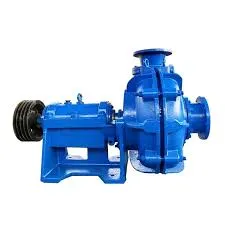English
- Afrikaans
- Albanian
- Amharic
- Arabic
- Armenian
- Azerbaijani
- Basque
- Belarusian
- Bengali
- Bosnian
- Bulgarian
- Catalan
- Cebuano
- Corsican
- Croatian
- Czech
- Danish
- Dutch
- English
- Esperanto
- Estonian
- Finnish
- French
- Frisian
- Galician
- Georgian
- German
- Greek
- Gujarati
- Haitian Creole
- hausa
- hawaiian
- Hebrew
- Hindi
- Miao
- Hungarian
- Icelandic
- igbo
- Indonesian
- irish
- Italian
- Japanese
- Javanese
- Kannada
- kazakh
- Khmer
- Rwandese
- Korean
- Kurdish
- Kyrgyz
- Lao
- Latin
- Latvian
- Lithuanian
- Luxembourgish
- Macedonian
- Malgashi
- Malay
- Malayalam
- Maltese
- Maori
- Marathi
- Mongolian
- Myanmar
- Nepali
- Norwegian
- Norwegian
- Occitan
- Pashto
- Persian
- Polish
- Portuguese
- Punjabi
- Romanian
- Russian
- Samoan
- Scottish Gaelic
- Serbian
- Sesotho
- Shona
- Sindhi
- Sinhala
- Slovak
- Slovenian
- Somali
- Spanish
- Sundanese
- Swahili
- Swedish
- Tagalog
- Tajik
- Tamil
- Tatar
- Telugu
- Thai
- Turkish
- Turkmen
- Ukrainian
- Urdu
- Uighur
- Uzbek
- Vietnamese
- Welsh
- Bantu
- Yiddish
- Yoruba
- Zulu
Telephone: +86 13120555503
Email: frank@cypump.com
Sep . 07, 2024 19:09 Back to list
Reliable Sewage Sump Pumps for Effective Wastewater Management
Understanding Sewage Sump Pumps Essential Components for Waste Management
Sewage sump pumps play an integral role in managing wastewater in residential and commercial settings. These powerful devices are designed to collect and transfer sewage and other waste materials away from buildings and into the municipal sewage system or a septic tank. Understanding their functionality and importance can help homeowners make informed decisions about waste management solutions.
What is a Sewage Sump Pump?
A sewage sump pump is a type of submersible pump specifically engineered to handle wastewater that contains solids and debris. Unlike standard sump pumps, which only manage clear water, sewage pumps are equipped with specialized impellers capable of grinding up solid materials. This feature allows them to efficiently transport waste to the appropriate disposal location.
How Do Sewage Sump Pumps Work?
The operation of a sewage sump pump begins with the installation of a sump basin, typically located in the basement or lower level of a building. When wastewater accumulates in the basin, a float switch activates the pump, triggering it to move the waste through pipes to the designated sewage system. Most pumps operate with a motor and a series of valves to control the flow, ensuring minimal backflow and smooth operation.
Why Are Sewage Sump Pumps Important?
1. Prevent Flooding and Water Damage In areas prone to heavy rainfall or flooding, sewage sump pumps are crucial in preventing water from accumulating. They keep basements and lower levels dry, protecting property from water damage and mold growth.
2. Efficient Waste Removal These pumps are essential for homes and businesses that rely on basements for laundry, bathrooms, or utility spaces. By effectively managing wastewater, sewage sump pumps facilitate the efficient operation of these facilities.
3. Health and Safety Standing sewage can pose serious health risks, harboring harmful bacteria and pathogens. By keeping sewage and wastewater in check, sump pumps help maintain a safe and healthy environment for occupants.
sewage sump pumps

4. Compliance with Local Regulations Many municipalities require homes with lower levels or basements to have sewage sump pumps. Compliance with these regulations is not only important for legal reasons but also for the overall health of the community.
Choosing the Right Sewage Sump Pump
When selecting a sewage sump pump, several factors should be considered
- Horsepower More powerful pumps can handle larger volumes of waste and solids. Depending on the size of the home and the volume of wastewater, a pump with 1/2 to 1 horsepower is typically sufficient.
- Type of Switch Pumps come with different types of float switches, such as tethered or vertical. The choice largely depends on the dimensions of the sump basin.
- Material Look for pumps made from durable materials, like cast iron or thermoplastics, which can withstand the harsh conditions of sewage disposal.
- Maintenance Regular maintenance is essential to ensure the pump operates effectively. Homeowners should familiarize themselves with basic maintenance tasks or hire professionals to perform routine checks.
Conclusion
Sewage sump pumps are a vital component of effective waste management systems in any property. They prevent flooding, promote health and safety, and ensure compliance with local regulations. By understanding how these pumps work and what to look for when purchasing one, homeowners can make optimal choices for their specific needs. Investing in a quality sewage sump pump is a proactive step towards protecting one's home and ensuring a functional wastewater management system.
-
ISG Series Vertical Pipeline Pump - Chi Yuan Pumps Co., LTD.|Advanced Hydraulic Design&Energy-Efficient Solutions
NewsJul.30,2025
-
ISG Series Vertical Pipeline Pump - Chi Yuan Pumps Co., LTD.
NewsJul.30,2025
-
ISG Series Vertical Pipeline Pump - Chi Yuan Pumps Co., LTD.|energy-efficient fluid handling&industrial durability
NewsJul.30,2025
-
ISG Series Vertical Pipeline Pump - Chi Yuan Pumps | Advanced Engineering&Industrial Efficiency
NewsJul.30,2025
-
ISG Series Pipeline Pump - Chi Yuan Pumps | High Efficiency, Energy Saving
NewsJul.30,2025
-
ISG Series Vertical Pipeline Pump-Chi Yuan Pumps|High Efficiency&Reliable Performance
NewsJul.29,2025










